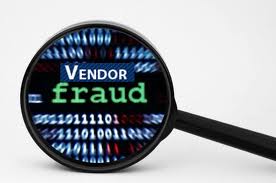Paul Monies
An Oklahoma telephone company, its owner and a vendor have been charged by federal authorities in a $25 million scheme to defraud a federal telephone subsidy program for low-income customers, officials said.
Wesley Yui Chew, Icon Telecom Inc. and a Mexican national, Oscar Enrique Perez-Zumaeta, were charged in federal court in Oklahoma City in cases involving the federal Lifeline fund. Money for the program comes from Universal Service Fund fees added to telephone customer bills.
Authorities said Chew, 53, and Icon conspired with Perez-Zumaeta, 55, to get fraudulent reimbursements from the Lifeline administrator, Universal Service Administrative Co. The scheme involved fake customer lists and recertification forms.
The Lifeline program has exploded in recent years as it expanded from landlines to wireless customers. Reimbursements from the Lifeline fund to phone companies grew from $800 million in 2008 to $2.2 billion in 2012. It has been the subject of several state and federal investigations alleging waste, fraud and abuse in the program.
Only one Lifeline service is allowed for each qualifying low-income household. In exchange for providing affordable phone service for low-income customers, telephone companies receive monthly Lifeline reimbursements of $9.25 per customer. An enhanced version of the program for residents of former tribal lands, such as most of Oklahoma, provides monthly reimbursements of $34.25 per customer.
According to the federal charges, Icon and Chew contracted with Perez-Zumaeta and his company, PSPS Sales LLC, which received $7 to $15 for each new Lifeline customer. Icon paid more than $1 million in commissions to PSPS Sales from December 2011 to April 2013, prosecutors said.
Perez-Zumaeta, of Cancun, Mexico, directed his employees to go through phone books to find names and addresses for bogus Lifeline customers, and then sold wireless telephones registered to fake customers on the street for $5 each, prosecutors said. PSPS Sales employees in Mexico forged about 40,000 signatures of customers for recertification forms needed for continued participation in the Lifeline program, according to the indictment.
Prosecutors said Chew and Icon made false statements in applying for reimbursements from the Lifeline administrator. Icon had 2,200 wireless customers in the Lifeline program in September 2011, but that number grew to more than 135,000 customers by November 2012, according to the charges.
From 2011 to 2013, Icon received more than $58.2 million in Lifeline reimbursements at the monthly tribal lands rate of $34.25 per customer, prosecutors said.
Sanford C. Coats, U.S. attorney for the Western District of Oklahoma, said everyone should be concerned when federal programs are abused and defrauded.
“Although this program was designed to help low-income Americans have basic access to phone service, these individuals, and their companies, allegedly exploited the system to line their own pockets,” Coats said in a statement.
Perez-Zumaeta was charged in a 10-count indictment with conspiracy, wire fraud and money laundering. He could face up to 20 years in prison for each of the conspiracy and wire fraud counts and up to 10 years for each money-laundering count. In addition, he faces fines of up to $250,000 for each count and mandatory restitution.
A federal public defender for Perez-Zumaeta did not return a call for comment. Prosecutors said Perez-Zumaeta was arrested in April at the San Francisco airport. In May, the court found he may be a flight risk, and he is being detained pending further proceedings.
Icon was charged with making false statements on 58 customer recertification forms and faces five years of probation, a fine of up to $500,000 and mandatory restitution.
Chew was charged with money laundering for transferring $20.4 million from an Icon bank account to his personal account. If convicted, Chew faces up to 10 years in prison and a fine of $250,000, or twice the amount of the criminally obtained property.
Chew and Icon have voluntarily refunded more than $5.7 million to the Lifeline program and have cooperated with investigators for almost a year, said their attorney, Dan Webber.
“He wants to make appropriate amends and put this matter behind him,” Webber said of Chew.
In 2012, the FCC adopted tougher rules to make sure customers weren’t signing up more than once for the Lifeline program and telephone companies were properly auditing their customer lists.
Icon pulled out of the federal Lifeline program and a separate state version of Lifeline in October after coming under fire from regulators at the Oklahoma Corporation Commission and the FCC.
Oklahoma regulators have several pending investigations of telephone companies involved in the state Lifeline program. Lawmakers recently cut the value of the monthly reimbursement in Oklahoma’s program to 2 cents per customer, down from $1.15.







